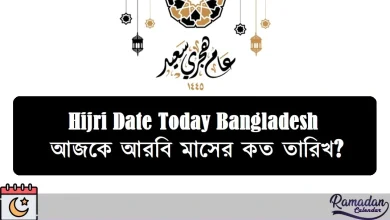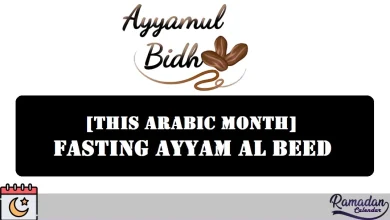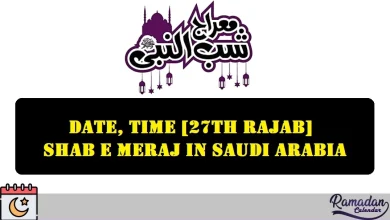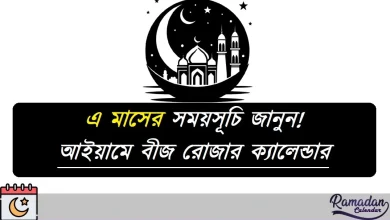Today Islamic Date in Bangladesh 2025 pdf [Hijri Date Today 1446]
Today Islamic Date in Bangladesh 2025 pdf [Today Hijri Date 1446]
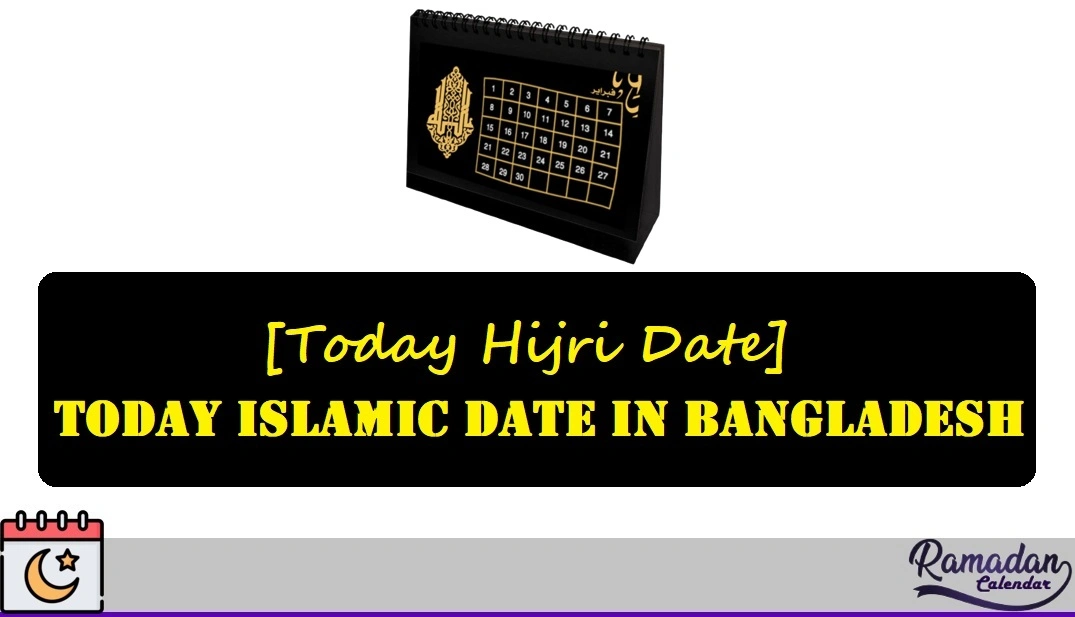
Today Islamic Date in Bangladesh 2025 pdf [Hijri Date Today 1446]: Understanding the Hijri Calendar and Its Importance: The Islamic calendar, also known as the Hijri calendar, holds profound significance for Muslims worldwide. It is not just a tool for marking time but a sacred framework that aligns significant religious practices with the lunar cycles. In Bangladesh, a country with a rich Islamic heritage, the Hijri calendar plays a pivotal role in daily life, shaping religious observances, cultural traditions, and even aspects of social interaction.
As of today in 2025, the Islamic date in Bangladesh corresponds to the Hijri year 1446. Understanding this date and the context of the Hijri calendar can deepen our appreciation for its role in Islamic culture and its relevance to modern life.
The Hijri Calendar: A Brief Overview
The Hijri calendar is a lunar calendar consisting of 12 months in a year of 354 or 355 days. Unlike the Gregorian calendar, which is based on the solar year, the Islamic calendar aligns itself with the moon’s phases. This causes the Islamic year to be approximately 10 to 12 days shorter than the Gregorian year, resulting in the shifting of Islamic months and holidays through the seasons over time.
The Hijri calendar begins from the year of the Prophet Muhammad’s (ﷺ) migration (Hijra) from Mecca to Medina in 622 CE. This monumental event marks the start of the Islamic era and signifies the establishment of the first Muslim community. The calendar’s months, such as Muharram, Ramadan, and Dhul-Hijjah, are rich with religious and historical importance.
Today’s Islamic Date in Bangladesh (1446 AH)
To determine today’s Islamic date in Bangladesh for 2025, one must refer to reliable sources that calculate the lunar calendar based on the sighting of the crescent moon. Local moon sighting committees and global Islamic organizations often collaborate to confirm the dates. As of now, the Islamic date in Bangladesh for 2025 falls within the year 1446 AH (Anno Hegirae).
The alignment of Islamic dates with the Gregorian calendar varies slightly across countries due to differences in moon sightings. In Bangladesh, the Islamic calendar is followed meticulously to schedule major religious events, including the five daily prayers, Ramadan, Eid-ul-Fitr, and Eid-ul-Adha.
The Islamic date in Bangladesh on January 13, 2025 is 12 Rajab 1446 AH.
The Relevance of the Hijri Calendar in Bangladeshi Life
In Bangladesh, a predominantly Muslim country, the Hijri calendar is deeply woven into the fabric of society. Its influence can be seen in several areas:
- Religious Observances: The Hijri calendar determines the timing of Ramadan, a month of fasting and spiritual reflection. It also dictates the dates of Eid-ul-Fitr, Eid-ul-Adha, and the Day of Ashura, among other significant events. These occasions are celebrated with communal prayers, feasts, and acts of charity.
- Cultural Traditions: Many traditional practices, such as the giving of Zakat (charitable alms) and the observance of Mawlid al-Nabi (the Prophet’s birthday), are scheduled according to the Islamic calendar. These events foster community bonds and uphold the values of compassion and unity.
- Personal Milestones: Muslims in Bangladesh often use the Hijri calendar to mark personal milestones, such as weddings, birthdays, and anniversaries. These dates carry spiritual significance and are a reminder of the individual’s connection to Islamic heritage.
Why Understanding the Islamic Date Matters
Being aware of the Islamic date is more than a mere acknowledgment of time; it is a way of staying connected to one’s faith. Here are some reasons why understanding today’s Islamic date in Bangladesh is essential:
- Spiritual Preparation: Knowing the Islamic date helps individuals prepare for significant religious observances, such as fasting during Ramadan or performing the Hajj pilgrimage during Dhul-Hijjah.
- Community Engagement: The Islamic calendar fosters a sense of unity within the Muslim community. Shared observances based on the lunar calendar strengthen communal bonds and create a sense of belonging.
- Cultural Preservation: In an age dominated by the Gregorian calendar, adhering to the Hijri calendar helps preserve Islamic culture and traditions. It serves as a reminder of the historical and spiritual milestones that shape Muslim identity.
How to Stay Updated on the Islamic Date
To stay informed about today’s Islamic date in Bangladesh, consider the following resources:
- Local Mosque Announcements: Mosques often announce the Islamic date based on moon sightings. Community leaders provide updates during prayer gatherings and religious events.
- Islamic Calendar Apps: Several mobile applications provide accurate Islamic dates and prayer times.
- These apps are particularly useful for those who wish to integrate the Hijri calendar into their daily routines.
- Printed Calendars: Many Islamic organizations and publishing houses in Bangladesh produce printed calendars that include both Gregorian and Hijri dates. These calendars often highlight significant Islamic events.
- Online Sources: Websites and digital platforms dedicated to Islamic content frequently update the Hijri date. Reliable sources ensure accurate information based on lunar observations.
The Significance of Today’s Islamic Date (1446 AH)
As we reflect on today’s Islamic date in Bangladesh, it’s essential to appreciate the enduring relevance of the Hijri calendar. Each day marked by this calendar serves as a spiritual checkpoint, encouraging Muslims to align their lives with Islamic values and teachings. It is a reminder of the cyclical nature of time and the transient nature of worldly pursuits, urging believers to focus on eternal rewards.
In Bangladesh, where faith and tradition are deeply cherished, the Hijri calendar continues to be a source of guidance and inspiration. By understanding and embracing today’s Islamic date, we not only honor our religious heritage but also strengthen our spiritual connection to the divine.
Conclusion
Today’s Islamic date in Bangladesh for the year 2025 is a reflection of the enduring significance of the Hijri calendar. This sacred timekeeping system, rooted in Islamic history and tradition, remains a vital part of Muslim life. Whether it’s through the observance of Ramadan, the celebration of Eid, or the marking of personal milestones, the Hijri calendar provides a spiritual framework that unites the Muslim community and preserves its rich heritage.
As we navigate the complexities of modern life, staying connected to the Islamic calendar can help us find balance, purpose, and a deeper sense of belonging. So, let us embrace today’s Islamic date and the timeless wisdom it represents, honoring our faith and culture in every moment of our lives.
